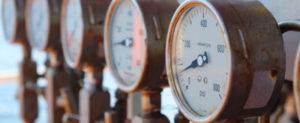
As winter sets in, homeowners face a myriad of challenges, one of the most daunting being the freezing of pipes. Frozen pipes can lead to a plethora of issues, including inconvenient disruptions in water supply, and in severe cases, bursting pipes that can cause extensive property damage. Understanding and implementing effective measures to prevent pipes from freezing is essential for maintaining a smooth-functioning household during the colder months. This article outlines practical steps homeowners can take to protect their pipes from the icy grip of winter.
Understanding the Risk of Frozen Pipes
Before delving into prevention methods, let’s first try to understand why pipes freeze. Pipes are most susceptible to freezing when they are exposed to severely cold temperatures, especially those in unheated interior spaces like basements, attics, and garages, as well as those that run along exterior walls with minimal insulation. When the water inside these pipes freezes, it expands, increasing the pressure inside and potentially leading to cracks or bursts.
More often than not, this type of problem won’t present itself until the winter months, when it gets cold enough for water to freeze. If they do freeze, then you’ll likely experience a lot of problems that range from faulty plumbing to leaks or even floods.
How to Stop Pipes Freezing
Now that we have a good idea of why pipes freeze, let’s learn how you can stop this problem from occurring. Below, we’ve outlined several tips you can employ to keep your pipes flowing during winter:
Insulation is Key
One of the most effective ways to prevent pipes from freezing is to ensure they are well insulated. This can be achieved by using pipe insulation – a foam tube that covers the pipes to keep them warm. It’s especially important to insulate pipes in unheated or vulnerable areas of your home.
Improving your home’s overall insulation contributes significantly to warmer interior temperatures, thus reducing the risk of freezing pipes. Pay special attention to areas like attics, basements, and crawl spaces. Sealing cracks and openings around doors and windows can also help maintain a warmer environment inside your home.
Keeping the Heat On
Maintaining a consistent and adequate heating level in your home is crucial. Even when you’re away, keep your thermostat set to at least 13 degrees Celsius. This ensures that your home remains warm enough to prevent pipes from freezing, especially those inside cabinets or exterior walls. To ensure you can consistently keep your heating on, it’s a good idea to get your boiler or central heating serviced before winter arrives.
Let Your Taps Drip
Allowing your faucets to drip slightly can relieve pressure in the water system. If a pipe does freeze, a slight trickle of water can prevent it from bursting by providing an outlet for the pressure buildup caused by the frozen section.
Open Cabinet Doors
In kitchens and bathrooms, pipes are often located in cabinets against exterior walls. On extremely cold nights, keep cabinet doors open to allow the warmer air from the rest of the house to circulate around the pipes, reducing the risk of freezing.
Seal the Gaps
Check for any gaps where pipes enter your home from the outside. These gaps can allow cold air to reach the pipes and should be sealed with caulk or spray foam insulation to keep the warmth in and the cold out.
Exterior Preparations
Remove, drain, and store garden hoses before the onset of winter. Leaving hoses connected can cause water to back up in the taps and in the pipes inside your home, increasing the likelihood of freezing.
If your home has interior shut-off valves leading to outdoor taps, close them and drain the water from the outside lines. Covering these taps with insulating foam covers can also provide additional protection.
Long-Term Solutions for Frozen Pipes
In some cases, rerouting vulnerable pipes to more protected areas of the home is a viable long-term solution. Although potentially costly, this preventive measure can greatly reduce the risk of future freezes.
Upgraded Insulation
Upgrading the insulation in your home, particularly in areas with exposed pipes, is an effective long-term solution. Consider options like spray foam insulation for better thermal protection.
Installing Heat Tape or Heat Cables
For pipes that are particularly prone to freezing, installing heat tape or heat cables can be an effective solution. These electrically heated cables are wrapped around the pipe, providing enough heat to prevent freezing. It’s important to follow the manufacturer’s instructions or hire a professional for installation to ensure safety.
Being Prepared if Your Pipes Freeze
Despite all precautions, pipes can still freeze. In such cases, it’s important to act quickly to mitigate damage. In the event of an emergency, make sure you contact a competent professional who can effectively deal with your problem. There are also a few other things you can do to ensure you’re as prepared as possible if your pipes freeze. This includes:
Detecting Frozen Pipes
If you turn on a faucet and only a trickle comes out, suspect a frozen pipe. Likely places include those exposed to severe cold, such as outdoor hose bibs, swimming pool supply lines, water sprinklers, and water pipes in basements, attics, garages, kitchen cabinets, and along exterior walls.
Thawing Frozen Pipes
If you discover a frozen pipe, open the faucet and then apply heat to the section of the pipe that is frozen. This can be done using a hairdryer, heating pad, or portable space heater – never use an open flame. Apply heat until full water pressure is restored.
Stay Warm This Winter by Stopping Your Pipes From Freezing
Preventing pipes from freezing is a key winter preparedness activity that can save homeowners from costly repairs, stress and a lot of inconvenience. By implementing these steps, you can significantly reduce the risk of frozen pipes in your home. Regular maintenance and vigilance during the colder months will ensure that your pipes will stay in good condition for longer while also mitigating the risk of frozen pipes.
If you’re dealing with frozen pipes and require assistance, then please get in touch with our team at West London Gas today.
